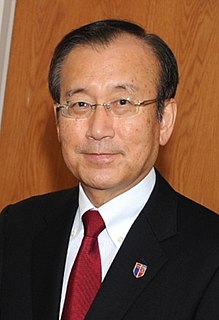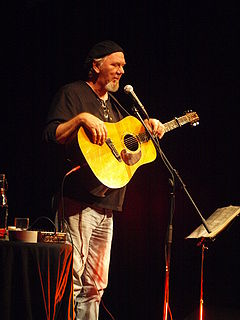A Quote by Pierre Teilhard de Chardin
If we are to be happy, we must first react against our tendency to follow the line of least resistance, a tendency that causes us either to remain as we are, or to look primarily to activities external to ourselves for what will provide new impetus to our lives.
Related Quotes
All of us are responsible to provide for ourselves and our families in both temporal and spiritual ways. To provide providently, we must practice the principles of provident living: joyfully living within our means, being content with what we have, avoiding excessive debt, and diligently saving and preparing for rainy-day emergencies. When we live providently, we can provide for ourselves and our families and also follow the Savior's example to serve and bless others.
We cannot and must not allow ourselves to have the message of Hiroshima and Nagasaki fade completely from our minds, and we cannot allow our vision or ideals to fade, either. For if we do, we have but one course left for us. And that flash of light will not only rob us of our vision, but it will rob us of our lives, our progeny, and our very existence.
At least one indication of unbelief is the tendency to measure life's challenges against our own adequacy instead of God's promises. To enter our Sabbath rest, we must put an end to self-reliance - trusting in our own abilities to overcome difficulties, rise above challenges, escape tragedies, or achieve personal greatness.
We are all vulnerable, and we will all, at some point in our lives... fall. We will all fall. We must carry this in our hearts... that what we have is special. That it can be taken from us, and when it is taken from us, we will be tested. We will be tested to our very souls. We will now all be tested. It is these times, it is this pain, that allows us to look inside ourselves.
The subject of contemporary art should include a political dimension, the distrust contemporary art has towards the existing order. One manifestation of this distrust is the mechanical dichotomization between art's form and its political content; the other is the institutionalizing tendency of anti-institutionalization. We almost never resist ourselves - the part of ourselves that has been institutionalized. We have occupied the word "resistance" and have become its owner, while "resistance" has become our servant. Thus, we own "resistance" and occupy it as a position of power.
As we move forward, I am looking for a new leader of the Chicago Police Department to address the problems at the very heart of the policing profession. The problem is sometimes referred to as "the thin blue line." The problem is other times referred to as "the code of silence." It is this tendency to ignore. It is the tendency to deny. It is the tendency, in some cases, to cover up the bad actions of a colleague or colleagues.








































